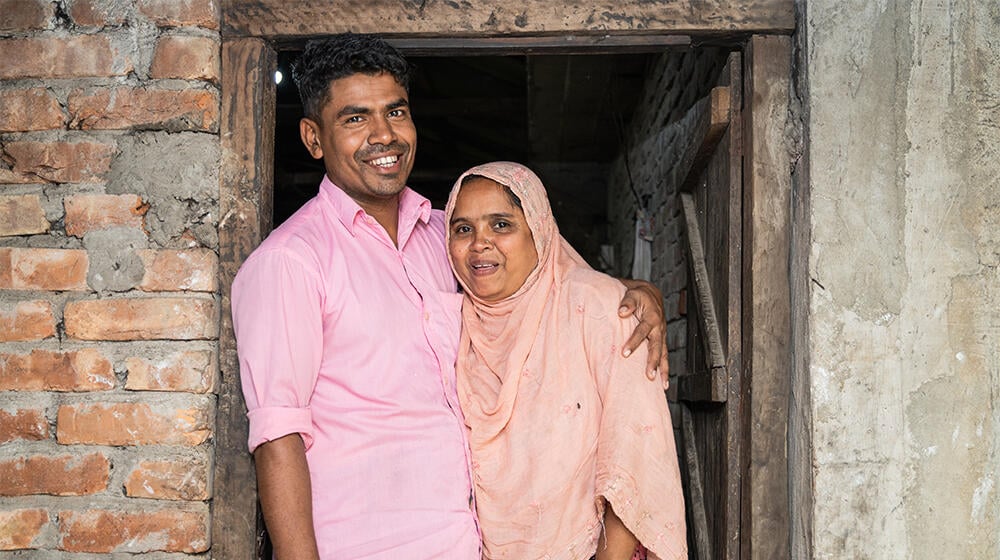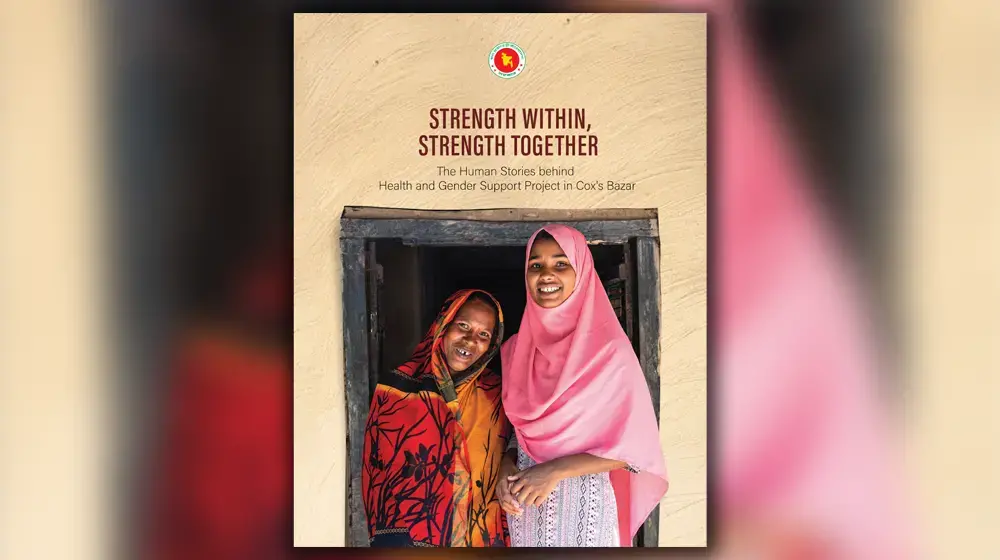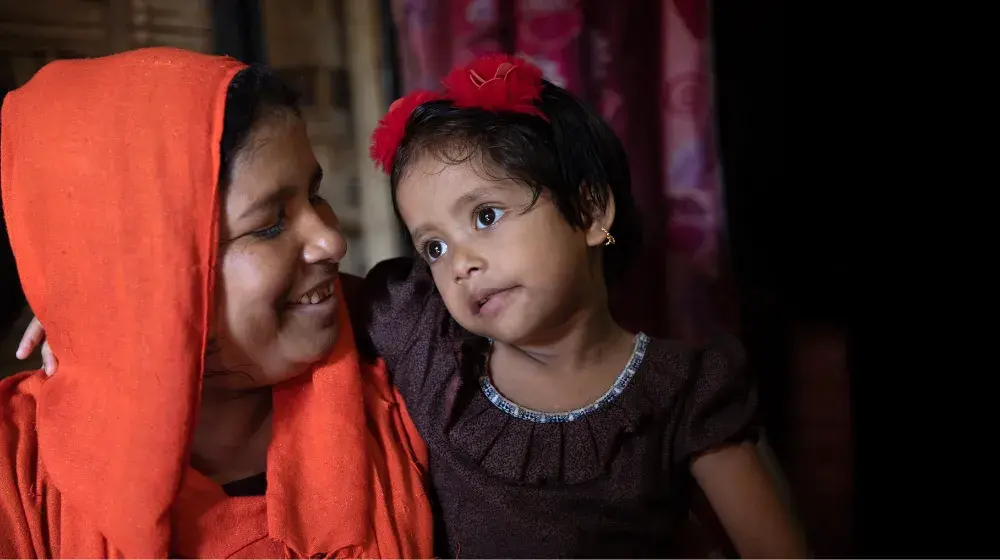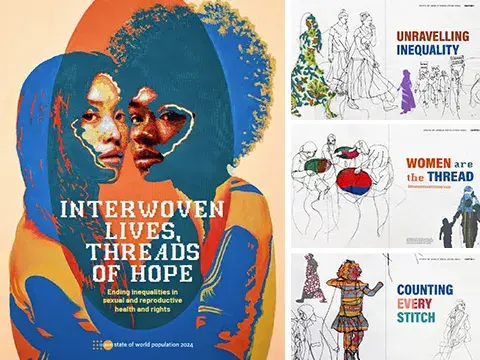Jahangir and Shirin live with their two children in Ramu, Cox’s Bazar. Jahangir runs a store and Shirin cultivates their land for farming. They started attending UNFPA-supported Couple Meetings a year ago and found the discussions helpful in bringing them closer to each other.
Looking back on their marriage, both Jahangir and Shirin bring an extraordinary level of honesty and self-awareness to the conversation. These days, they can openly discuss their differences and insecurities without bursting into a fighting match – of which there were many in the past.
“We used to have too many arguments. About business, household chores, parenting and so on. None of us were skilled in resolving our conflicts.”
A useful communication technique that the couple has learned from the meetings is how to step outside their own perspectives and acknowledge their partner's experience “with an open mind and a lot of empathy,” especially during difficult times, the couple explained.
"Finding common ground as a team ended the nitpicking,” Jahangir reflected. “Why would I find fault with my wife? We are on the same team.”
“Maintaining the house, raising our children and working on the farm – all these duties, combined together, weighed heavily on me. I wanted to hire help because I was struggling by myself,” Shirin said, referring to their most common disagreement from a year ago.
“We have a humble business. When she wanted to hire help, I felt like she did not try to understand me or our financial situation. There was no way we could afford the extra expense,” Jahahngir said.
“The Couple Meetings made me realise there was a quick fix to our situation. It was an obvious solution that never occurred to us.” Jahangir added. “It was to share the household work with Shirin and play an equal parenting role. So, now I also cook, clean and take the children to school.”
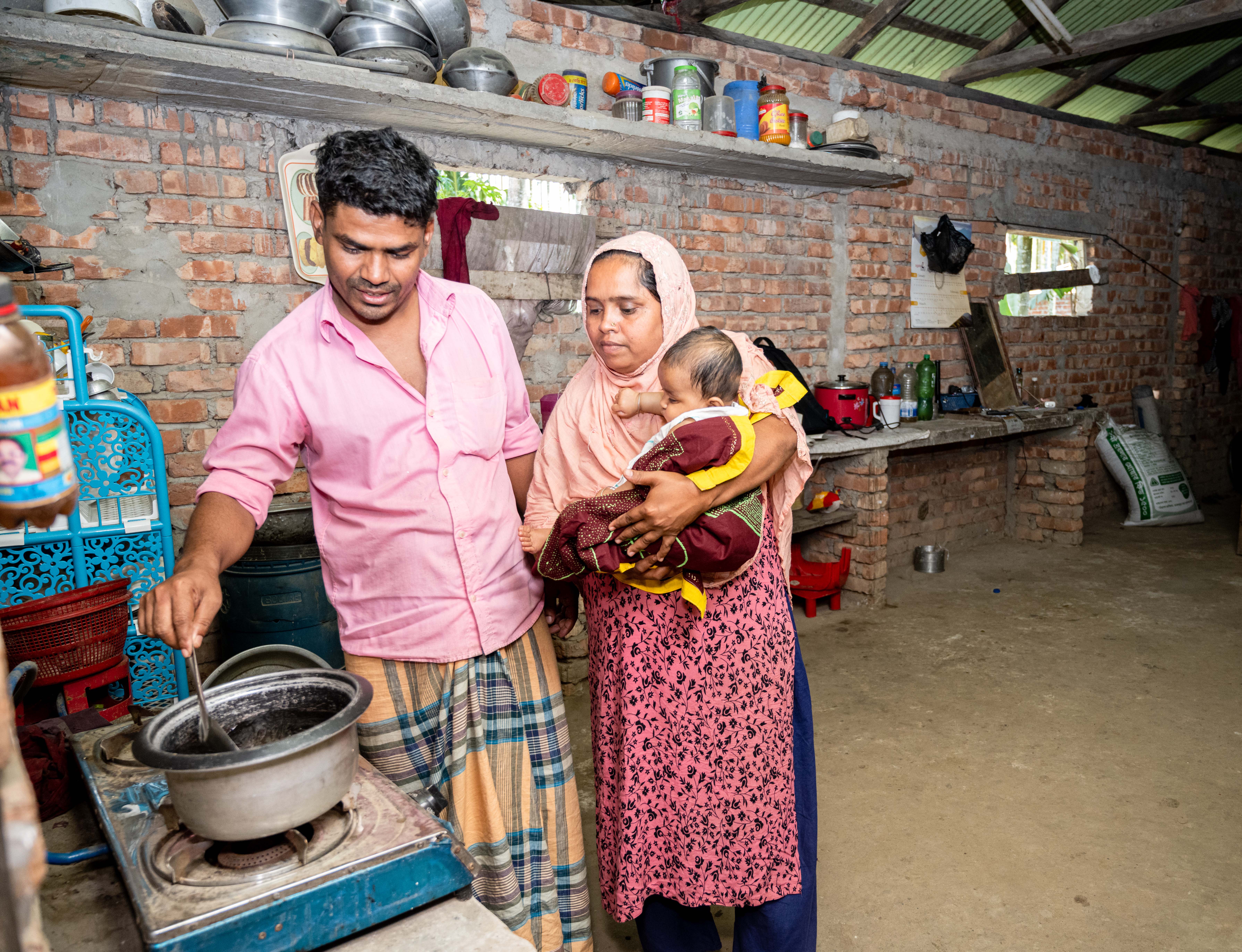
Shirin and Jahangir acknowledged that the Couple Meetings further helped them with resolving conflicts around their personal finances. “He would sometimes take loans for our store, but never discussed these decisions with me – despite the potential consequences for the whole family,” Shirin said.
The Couple Meetings helped Jahangir realise that Shirin has an equal stake in the survival of their business and the wellbeing of their family. Now, the couple mutually make decisions about their finances. They are more adept at actively listening without judgement, respecting each other's need for space, and facing life's hurdles and joys as a united front.
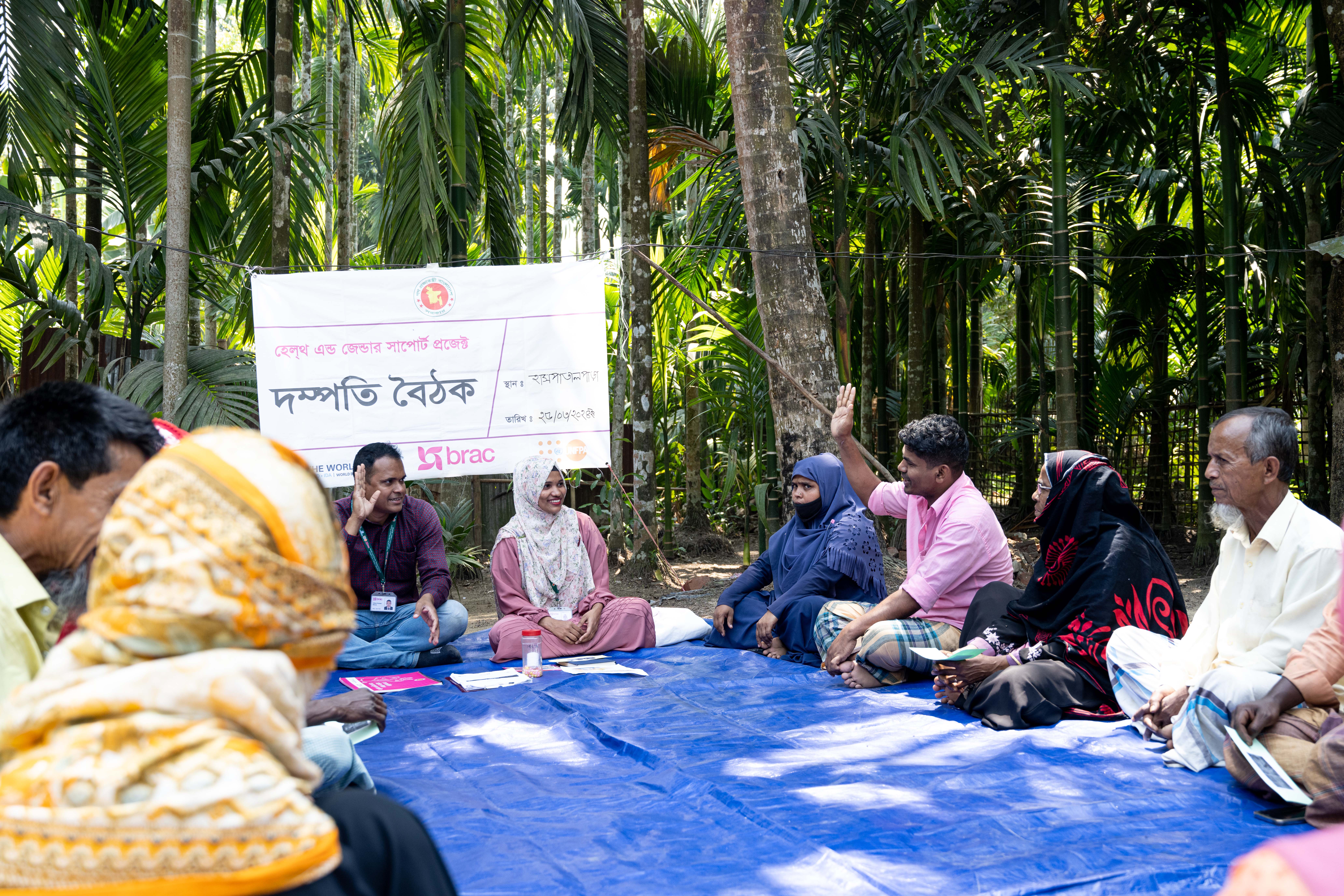
Beyond communication, their bond deepened through frequent expressions of appreciation. The couple readily acknowledge each other's strengths – Jahangir, for instance, loves that Shirin, no matter how busy a day she has, always checks up on him through phone calls, and Shirin admires Jahangir's unfailing consideration, always waiting for her so that they can have dinner together.
The improvement in their marital lives has been so apparent that both Jahangir and Shirin have become vocal advocates for Couple Meetings, urging friends and neighbors to participate in the discussions as well.
“Our marriage has never been better. Why wouldn’t we ask every married couple we know to attend the meetings?” the couple beamed.
With World Bank’s funding and UNFPA's technical support, the Ministry of Health and Family Welfare launched the Health and Gender Support Project in 2021 in the Cox’s Bazar district. Under this project, 17,000 couples engaged in conversations about healthy gender relations through Couple Meetings.

